‘Timestalker’ Director Alice Lowe On Women And The Horror Genre: “I Like Outraging An Audience”
- Oops!Something went wrong.Please try again later.
- Oops!Something went wrong.Please try again later.
- Oops!Something went wrong.Please try again later.
- Oops!Something went wrong.Please try again later.
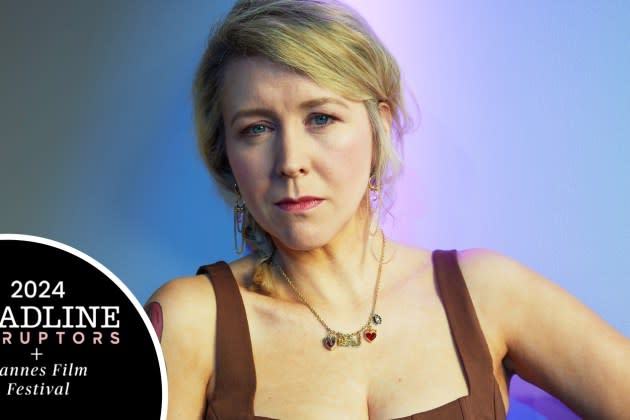
After she won the 2021 Palme d’Or for Titane, in a which a sociopathic stripper becomes a serial killer and has sex with muscle cars, Julia Ducournau was effusive in her gratitude to the Cannes Film Festival. “Thank you for calling for more diversity in our experiences of film and our lives,” she said. “Thank you for letting in the monsters.”
Titane was only her second movie; the first, Raw, made its humble debut in Critics’ Week, but it was recognizably the work of the same artist, being a tender coming of age story about a veterinary student who discovers that she comes from a long line of cannibals.
More from Deadline
Ultimate Final Girls In Horror Photo Gallery: From Laurie Strode To Sidney Prescott & Dorothy Gale
Neon Promotes Elissa Federoff To Chief Distribution Officer & Ryan Friscia To CFO
Although Cannes has a long way to go in terms of gender parity, the festival has been quick to tap into the new wave of female-directed horror that has sprung up in the wake of Jennifer Kent’s The Babadook 10 years ago. In Competition this year there’s Coralie Fargeat’s The Substance, the follow-up to her blood-drenched thriller Revenge, and in the Midnight strand, there’s The Balconettes by Noémie Merlant, teased by mk2 Films as “a brazen in-your-face-foray into genre.” And in Critics’ Week we have Emma Benestan’s Animale — described by the sidebar as “a Western, slasher, body horror, and revenge film” — in which a strange beast stalks a French town’s annual running-of-the-bulls event.
RELATED: Cannes Film Festival 2024 In Photos: Opening Ceremony & ‘The Second Act’ World Premiere
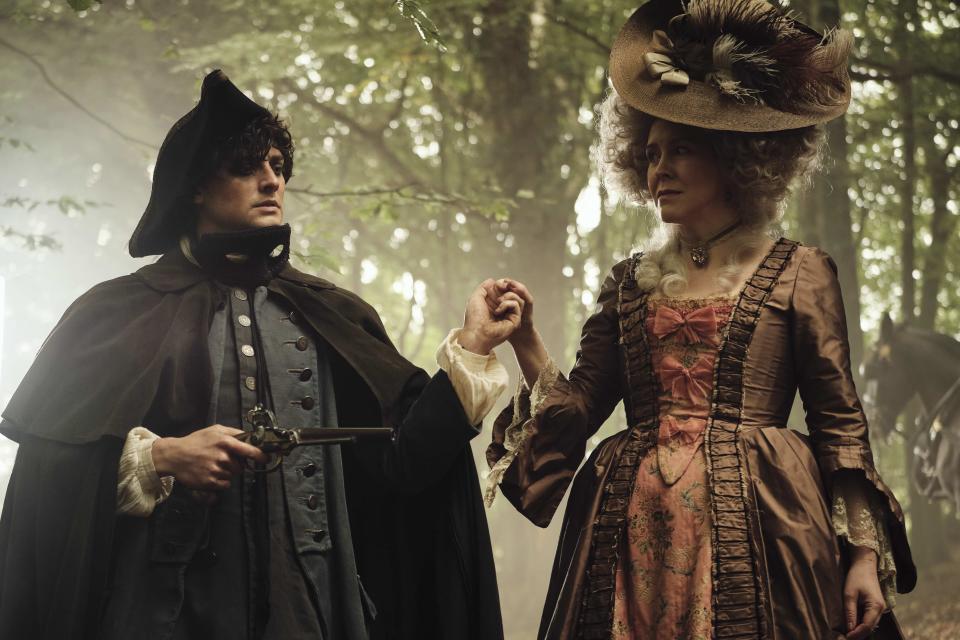
Outside of Cannes, the phenomenon has also been embraced by Sundance, where The Babadook debuted, and which recently hosted the world premiere of Rose Glass’s steamy, sexually transgressive, steroid-abuse crime story Love Lies Bleeding. SXSW isn’t far behind either; the Texas festival introduced audiences to Alice Lowe’s Timestalker, a British horror comedy with roots in 18th century romantic fiction and Monty Python. Once again starring Lowe, Timestalker tells the story of Agnes, a woman condemned to relive the same doomed love story in different settings and centuries.
As an actor, Lowe has been familiar to genre fans for her work with British directors such as Edgar Wright and Ben Wheatley, with whom she made Sightseers in 2012. She made her debut behind the camera in 2016 while heavily pregnant; the film was called Prevenge and starred Lowe herself as a grieving widow whose unborn child commands her to kill, messily, the people she believes were responsible for her husband’s death.
RELATED: Cannes Film Festival 2024: All Of Deadline’s Movie Reviews
“I loved making Prevenge,” she says now. “I really enjoyed it, but the number of people that were like, ‘God, I’m sorry you had such a terrible, traumatic experience with pregnancy…’ I’d be like, ‘It’s not a documentary! I had a whale of a time. I was living my best life.’ Appearances can be deceiving! But, having said that, I love to test the audience’s tolerance, really, as regards what they expect from a female filmmaker.”
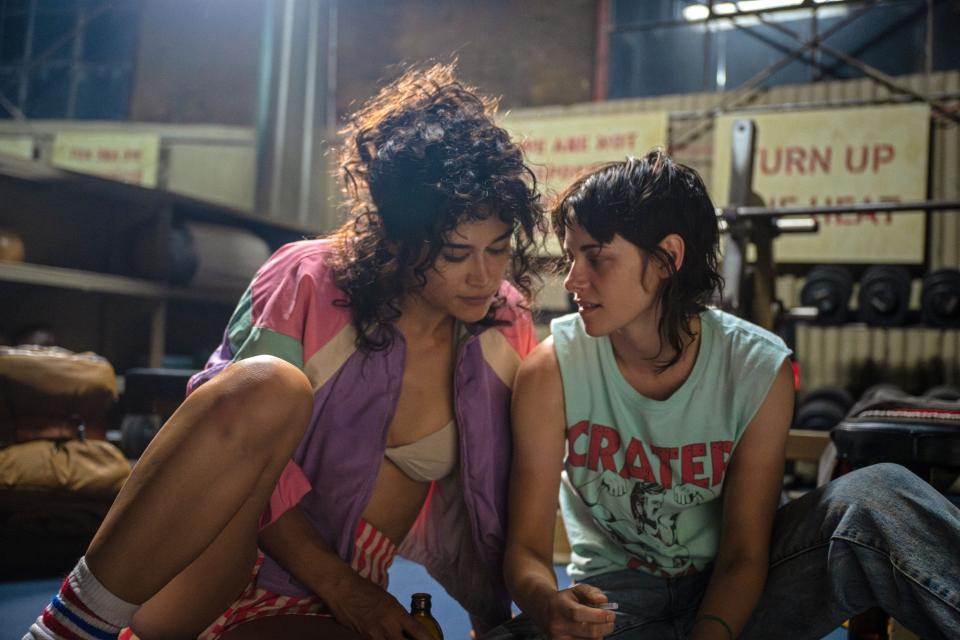
By way of comparison, she mentions reading a review of Jane Campion’s The Piano. “They said, ‘It’s like a childish fairytale,’” she recalls. “It was such gendered way of seeing it, I thought, because, to my mind, all films are f*cking fairy tales! Who thinks that anything that comes out of one person’s mind is necessarily more valuable than what comes out of someone else’s mind? But I think there’s a pressure on women to show what women are, [to show] the reality of what women are.
“I feel like that’s our social responsibility with film at the moment,” she continues, “and I’m not having that. I’m a fantasist. I’m deluded. I’m a deluded fantasist, and that’s what my films are going to be about. And why shouldn’t they be? I think that was definitely my reaction to the era that we’re in, and I’m so delighted there’s so many filmmakers out there — female filmmakers — who are breaking new ground.”
Though Rose Glass also uses explicit gore as one of her tools, primarily to make her audience squirm, Lowe revels in the absurdity of it all. The violence in her films is apt to be graphic yet utterly ridiculous. “I like outraging an audience,” she says. “Isn’t that what it’s about? If you’re making an independent film, you’re not trying to not rock any boats. I’m not making a Hallmark card, studio romcom. I’m trying to ruffle some feathers.”
Lowe suggests that, in some ways, horror is a relatively safe area for women to work in, since it’s a solidly commercial genre in terms of sales, and that balances out some of the usual concerns about female-driven stories. As long as a horror film delivers the requisite chills and kills, the horror audience can be very accepting of changes to the formula. Proof of that fact is that it would be impossible to make a modern-day slasher movie today, with ’70s levels of sexism and sexual sadism, without a significant level of irony.
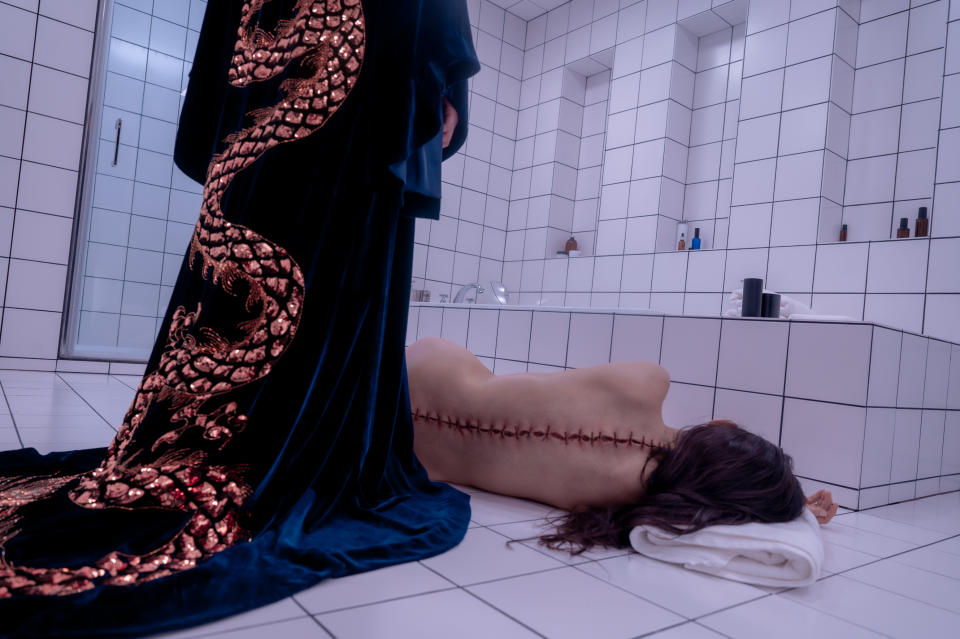
“For me, it’s about perspective and interiority,” says Lowe. “That was the whole thing with Prevenge. I was saying, ‘I’m going to make you see the world through this pregnant woman’s eyes. I’m not going to let you have another person to latch onto.’ I often use Taxi Driver as an example. When people say, ‘I don’t like the main character,’ I’ll say ‘Do you like Travis Bickle? Do you want him to be your best friend? I don’t think so. But you still watch his story.’ With Prevenge, I wanted to create a female character that was like that. You don’t have to like her, that’s fine. You’re just going on a journey with her.”
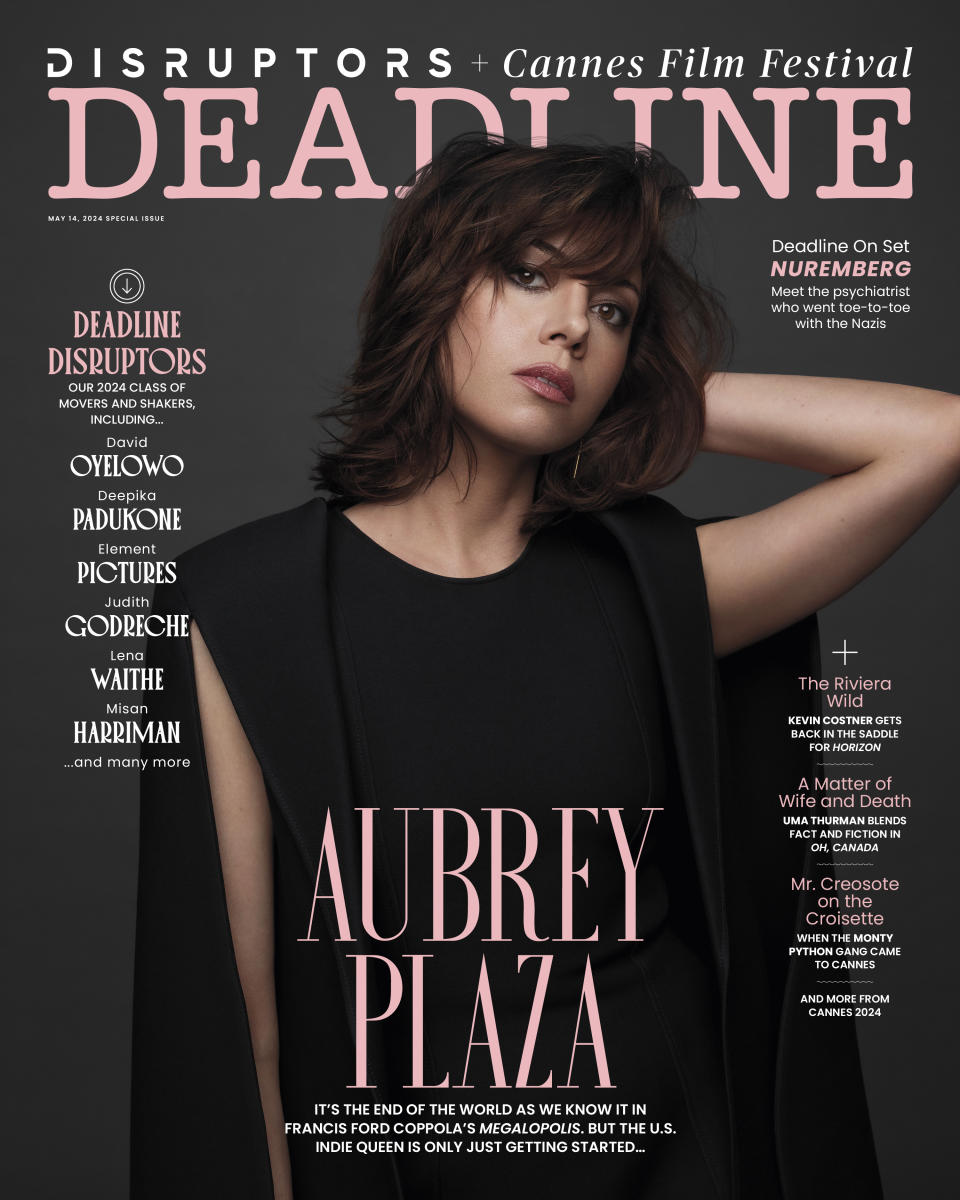
This, she thinks, is true of Timestalker as well. “It’s like you’re in this woman’s head,” she says. “You don’t have any choice. There’s nowhere to run. It’s probably one of the darkest films I’ve made, in that way, even though I didn’t try to make it dark. Because you’re just in this woman’s world and you don’t get out of it. You’re not allowed out of it.”
Furthering the comparison with Taxi Driver, Lowe explains that her primary urge is to rebel against gender expectations. “I wanted to tell a story that would force you into the perspective of a person who is typically reviled,” she says. “There’s a certain horror trope — like Kathy Bates in Misery or Glenn Close in Fatal Attraction — of the woman as monster. I wanted to say, ‘Well, what’s her story? What’s she got to say about it? How does she feel?’ And then I’m going to force you to feel how she feels, because you are going to see it from her point of view. I want the audience to feel like they haven’t seen this story before, even if they think they have.” She laughs. “Especially if they think they have.”
Best of Deadline
Hollywood & Media Deaths In 2024: Photo Gallery & Obituaries
2024 Premiere Dates For New & Returning Series On Broadcast, Cable & Streaming
2024-25 Awards Season Calendar - Dates For Oscars, Tonys, Guilds, BAFTAs, Spirits & More
Sign up for Deadline's Newsletter. For the latest news, follow us on Facebook, Twitter, and Instagram.

